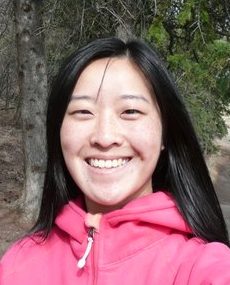Jennifer Tsui

BA 2007: Double Major Psychology and History
From educated to employed, that’s the story of our Arts Co-op graduate Jennifer Tsui, who found work right after graduation.
Tsui’s first Co-op work experience as a Gallery Interpreter Information Coordinator at the Royal Tyrrell Museum of Palaeontology (Drumheller, Alberta) was one of her most “gratifying, enriching, and enjoyable experiences in [her] life.” She led gallery tours, interacted with tourists, and developed projects which gave her the organizational and project management skills she needed for her next two positions as a research assistant with the UBC Arts Academic Office and as a camp program coordinator assistant with Cornerstone Evangelical Baptist Church.
“I think it was my last work term where I finally settled on what I wanted to do for the rest of my life,” says Tsui. As an editorial assistant in Corporate Communications, Tsui “researched, wrote, and edited stories for the WorkSafe Network (WorkSafe BC’s corporate intranet), conducted research projects, and wrote for WorkSafe Magazine and other publications.”
After her last work term, WorkSafe BC extended her a regular contract until she found a more permanent position within the organization. Tsui says, “Co-op definitely equipped me with the skills and experience to anticipate and cope with all the challenges and adjustments that come with working.”
For Tsui, a double-major in History and Psychology provided her with fundamental skills in writing, researching, and thinking critically. These skills were honed during her studies and applied to all her jobs.
Tsui’s current position with WorkSafe suits her well. “I’m part of the process that re-evaluates how the department does things and identifies areas where we can improve. I like that I’m in a position where I can really effect change within the department,” says Tsui.
When asked, “Did your work term experiences affect or alter your career plan? If so, how? Tsui said, “Absolutely. I used to think I wanted to do something along the lines of research or sitting at a desk doing something “academic”. But now I realize that I really enjoy being creative in my work, whether it be writing or designing something, I know that’s what I want my career to be founded on.”
Tsui only briefly considered working in non-profit and communications as a career when she began in the Co-op program but now she knows that’s what she wants to do. She is even going to go back to school to get her masters in communications. She says, “The opportunities are endless” for her.
Tsui’s advice to students in Co-op or for students thinking about Co-op is to, “be flexible and take advantage of any and every opportunity that comes your way! Most likely, the career you think you want when you start school and/or Co-op is not the same career you’ll want when you’re finished.”
For Tsui, joining the Arts Co-op Program is “one of the best decisions you’ll ever make: professionally, academically, financially, and personally.”
Jennifer Tsui



BA 2007: Double Major Psychology and History
From educated to employed, that’s the story of our Arts Co-op graduate Jennifer Tsui, who found work right after graduation.
Tsui’s first Co-op work experience as a Gallery Interpreter Information Coordinator at the Royal Tyrrell Museum of Palaeontology (Drumheller, Alberta) was one of her most “gratifying, enriching, and enjoyable experiences in [her] life.” She led gallery tours, interacted with tourists, and developed projects which gave her the organizational and project management skills she needed for her next two positions as a research assistant with the UBC Arts Academic Office and as a camp program coordinator assistant with Cornerstone Evangelical Baptist Church.
“I think it was my last work term where I finally settled on what I wanted to do for the rest of my life,” says Tsui. As an editorial assistant in Corporate Communications, Tsui “researched, wrote, and edited stories for the WorkSafe Network (WorkSafe BC’s corporate intranet), conducted research projects, and wrote for WorkSafe Magazine and other publications.”
After her last work term, WorkSafe BC extended her a regular contract until she found a more permanent position within the organization. Tsui says, “Co-op definitely equipped me with the skills and experience to anticipate and cope with all the challenges and adjustments that come with working.”
For Tsui, a double-major in History and Psychology provided her with fundamental skills in writing, researching, and thinking critically. These skills were honed during her studies and applied to all her jobs.
Tsui’s current position with WorkSafe suits her well. “I’m part of the process that re-evaluates how the department does things and identifies areas where we can improve. I like that I’m in a position where I can really effect change within the department,” says Tsui.
When asked, “Did your work term experiences affect or alter your career plan? If so, how? Tsui said, “Absolutely. I used to think I wanted to do something along the lines of research or sitting at a desk doing something “academic”. But now I realize that I really enjoy being creative in my work, whether it be writing or designing something, I know that’s what I want my career to be founded on.”
Tsui only briefly considered working in non-profit and communications as a career when she began in the Co-op program but now she knows that’s what she wants to do. She is even going to go back to school to get her masters in communications. She says, “The opportunities are endless” for her.
Tsui’s advice to students in Co-op or for students thinking about Co-op is to, “be flexible and take advantage of any and every opportunity that comes your way! Most likely, the career you think you want when you start school and/or Co-op is not the same career you’ll want when you’re finished.”
For Tsui, joining the Arts Co-op Program is “one of the best decisions you’ll ever make: professionally, academically, financially, and personally.”